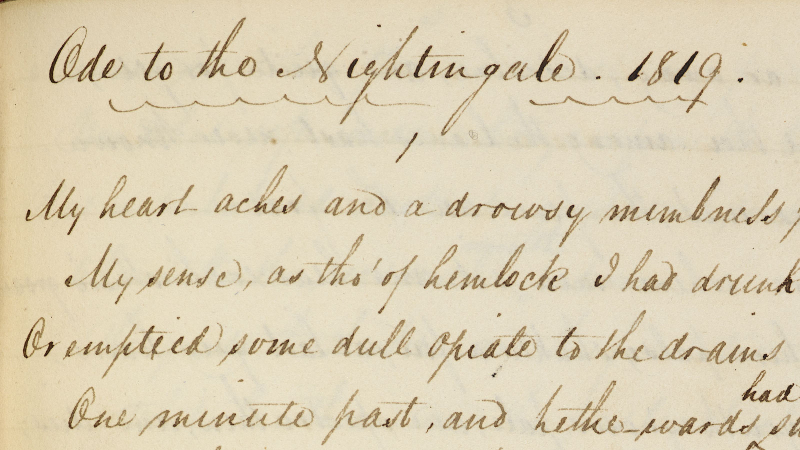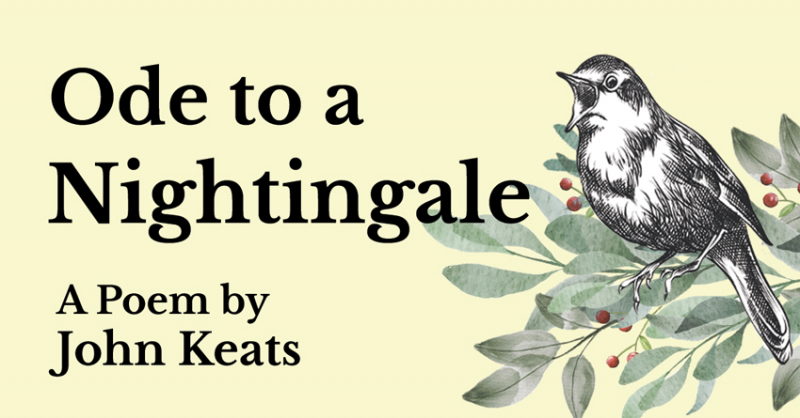Ode to a Nightingale
Excerpt:
Thou wast not born for death, immortal Bird!
No hungry generations tread thee down;
The voice I hear this passing night was heard
In ancient days by emperor and clown:
Perhaps the self-same song that found a path
Through the sad heart of Ruth, when, sick for home,
She stood in tears amid the alien corn;
The same that oft-times hath
Charm'd magic casements, opening on the foam
Of perilous seas, in faery lands forlorn.
Keats spent the summer of 1819 with his friend Charles Armitage Brown. A nightingale had constructed a nest near their residence, according to Brown. Keats was sitting under a plum tree in the garden one morning when he was inspired by the singing of a bird and wrote this brilliant poem in a few hours.
Ode to a Nightingale is more than just a straightforward poem that expresses the speaker's joy at hearing the nightingale's song. In the poem, the nightingale's singing alters the speaker's perspective and causes them to reflect deeply on time, mortality, beauty, nature, and human suffering. Even though the speaker contrasts human mortality with the longevity of the nightingale's song, the poem's main theme is that nothing lasts.
The longest of the classic odes, Ode to a Nightingale has 80 lines. Ode to a Nightingale is John Keats' most well-known poem, in addition to being one of the most anthologized in the English language.
Type: Ode
Published: 1819












